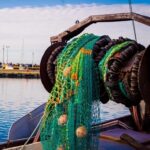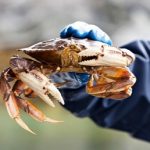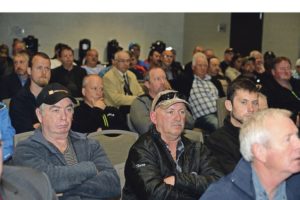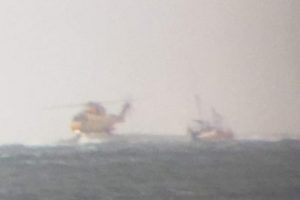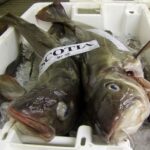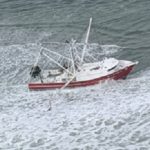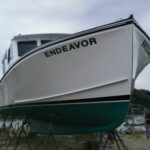Daily Archives: March 10, 2017
MD lawmakers call hearing on DNR crab manager’s firing
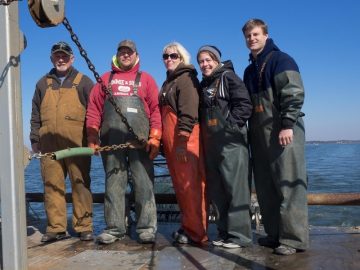 Maryland lawmakers have scheduled a special hearing to investigate the Hogan administration’s firing of the state’s longtime manager of the blue crab fishery. The House Environment and Transportation Committee and the Senate Education, Health, and Environmental Affairs Committee plan to meet jointly Monday to seek more information on the termination last month of Brenda Davis. A 28-year employee of the state Department of Natural Resources, Davis was dismissed Feb. 21 after a small group of watermen complained about her and crabbing regulations to Gov. Larry Hogan. Sen. Paul Pinsky, a Prince George’s County Democrat, said the committees want to know whether politics is influencing science and scientific decision-making in the department. “We have to shine a light on the firing of Brenda Davis,” Pinsky said Thursday. “It seems that the Hogan administration has made her a sacrificial lamb to a small group of watermen who have, to date, not been able to change state crabbing policy.” continue reading the story here 20:17
Maryland lawmakers have scheduled a special hearing to investigate the Hogan administration’s firing of the state’s longtime manager of the blue crab fishery. The House Environment and Transportation Committee and the Senate Education, Health, and Environmental Affairs Committee plan to meet jointly Monday to seek more information on the termination last month of Brenda Davis. A 28-year employee of the state Department of Natural Resources, Davis was dismissed Feb. 21 after a small group of watermen complained about her and crabbing regulations to Gov. Larry Hogan. Sen. Paul Pinsky, a Prince George’s County Democrat, said the committees want to know whether politics is influencing science and scientific decision-making in the department. “We have to shine a light on the firing of Brenda Davis,” Pinsky said Thursday. “It seems that the Hogan administration has made her a sacrificial lamb to a small group of watermen who have, to date, not been able to change state crabbing policy.” continue reading the story here 20:17
Pendulum ticks toward commercial fishermen as Cook Inlet meeting wraps
 The Board of Fisheries pendulum may have swung, but it’s still attached to the same clockwork. The triennial Upper Cook Inlet Board of Fisheries meeting ended March 8, leaving behind a big fish goal for the Kenai River late king salmon run, potential expanded hours for the Cook Inlet drift and setnet fleets, and a brand new early run king salmon plan on the Kenai River. Though the tone was mild compared to that of 2014, the same grudges against the Alaska Department of Fish and Game, the board, and among rival user groups are bubbling away. After three years of buildup following an emotional 2014 meeting, the 2017 marathon was sparsely attended and largely civil, focusing mainly on what ADFG Commercial Fisheries Division Operations Manager Forrest Bowers called “minor changes.” “This early run king plan, that’s probably the biggest change outside the large fish goal,” Bowers said. “With the late run sockeye plan, there was a long discussion but at the end of the day it didn’t really do much. The late run king plan, I mean, again, long discussion, relaxed the August restriction a bit, but it’s fundamentally the same.” continue reading the article here 13:25
The Board of Fisheries pendulum may have swung, but it’s still attached to the same clockwork. The triennial Upper Cook Inlet Board of Fisheries meeting ended March 8, leaving behind a big fish goal for the Kenai River late king salmon run, potential expanded hours for the Cook Inlet drift and setnet fleets, and a brand new early run king salmon plan on the Kenai River. Though the tone was mild compared to that of 2014, the same grudges against the Alaska Department of Fish and Game, the board, and among rival user groups are bubbling away. After three years of buildup following an emotional 2014 meeting, the 2017 marathon was sparsely attended and largely civil, focusing mainly on what ADFG Commercial Fisheries Division Operations Manager Forrest Bowers called “minor changes.” “This early run king plan, that’s probably the biggest change outside the large fish goal,” Bowers said. “With the late run sockeye plan, there was a long discussion but at the end of the day it didn’t really do much. The late run king plan, I mean, again, long discussion, relaxed the August restriction a bit, but it’s fundamentally the same.” continue reading the article here 13:25
Sea lions hinder salmon conservation
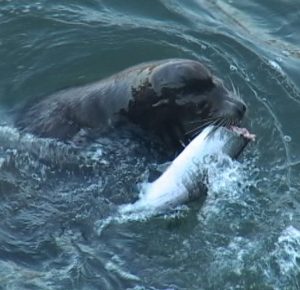 California and Steller sea lions took a bigger bite out of last year’s salmon run than in any previous year, according to a new federal report. 2015 saw a bigger run, with more than 239,000 chinook and steelhead migrating past Bonneville Dam. That year, the total number of salmon that sea lions ate was he largest ever recorded. The Army Corps of Engineers recorded more than 260 sea lions eating more than 10,000 fish from January to June 2015. The 2016 salmon run was far smaller, but the sea lions’ appetite for salmon didn’t shrink much. They still ate more than 9,500 fish, nearly 6 percent of the run. That’s the largest share of the run eaten by the large marine mammals since Army Corps scientists started watching 15 years ago. Read the rest here 12:43
California and Steller sea lions took a bigger bite out of last year’s salmon run than in any previous year, according to a new federal report. 2015 saw a bigger run, with more than 239,000 chinook and steelhead migrating past Bonneville Dam. That year, the total number of salmon that sea lions ate was he largest ever recorded. The Army Corps of Engineers recorded more than 260 sea lions eating more than 10,000 fish from January to June 2015. The 2016 salmon run was far smaller, but the sea lions’ appetite for salmon didn’t shrink much. They still ate more than 9,500 fish, nearly 6 percent of the run. That’s the largest share of the run eaten by the large marine mammals since Army Corps scientists started watching 15 years ago. Read the rest here 12:43
Atlantic Fisheries Fund: Atlantic Canada fish and seafood sector nets $325M from Ottawa
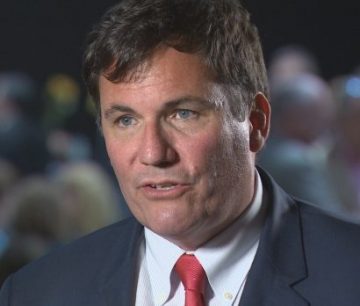 The funding, called the Atlantic Fisheries Fund, was announced Friday by Fisheries, Oceans and Canadian Coast Guard Minister Dominic LeBlanc. According to a release, the fund has a focus “to drive innovation” in the sector. In 2015, the landed value for Canada’s Atlantic commercial fisheries was $2.8 billion. “The numbers speak for themselves,” LeBlanc told reporters, adding 58,000 people in Atlantic Canada are employed in the fishing industry. The government will work with the Atlantic provinces to determine how the fund will work. LeBlanc said the money would be available to all Atlantic provinces to be used in the ways they need. Read the rest of the story here 12:12 $100M for N.L. in new fisheries innovation fund; CETA fund dead Read the story here 17:30
The funding, called the Atlantic Fisheries Fund, was announced Friday by Fisheries, Oceans and Canadian Coast Guard Minister Dominic LeBlanc. According to a release, the fund has a focus “to drive innovation” in the sector. In 2015, the landed value for Canada’s Atlantic commercial fisheries was $2.8 billion. “The numbers speak for themselves,” LeBlanc told reporters, adding 58,000 people in Atlantic Canada are employed in the fishing industry. The government will work with the Atlantic provinces to determine how the fund will work. LeBlanc said the money would be available to all Atlantic provinces to be used in the ways they need. Read the rest of the story here 12:12 $100M for N.L. in new fisheries innovation fund; CETA fund dead Read the story here 17:30
Maine’s most fertile scalloping ground to close on Sunday
 Fishing regulators are shutting down Maine’s most productive scallop fishing grounds for the season to protect the valuable shellfish. Cobscook Bay is the most important scalloping area along the Maine cost. Maine marine resources Commissioner Patrick Keliher says it needs to be shut down for the season on Sunday to make sure it stays fertile. Maine’s scallop season runs from December to April, but the closure of Cobscook typically represents a slowing down of the season. The state frequently shuts down scalloping areas early to conserve them for future years. Maine fishermen harvested more than 530,000 pounds of scallops in 2016. That was the second-most productive scallop fishing year in the state since 2001. (AP) link 11:18
Fishing regulators are shutting down Maine’s most productive scallop fishing grounds for the season to protect the valuable shellfish. Cobscook Bay is the most important scalloping area along the Maine cost. Maine marine resources Commissioner Patrick Keliher says it needs to be shut down for the season on Sunday to make sure it stays fertile. Maine’s scallop season runs from December to April, but the closure of Cobscook typically represents a slowing down of the season. The state frequently shuts down scalloping areas early to conserve them for future years. Maine fishermen harvested more than 530,000 pounds of scallops in 2016. That was the second-most productive scallop fishing year in the state since 2001. (AP) link 11:18
Cape officials push for Sea Grant program’s survival
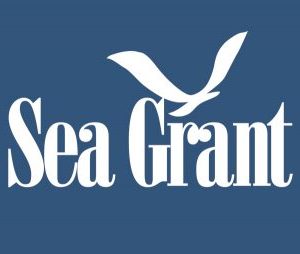 Judith McDowell and Bob Rheault were both drawn to Washington this week for the same reason: They wanted to salvage a threatened federal program that plays a key role in Cape Cod’s marine-dependent industries. McDowell, the director of the Woods Hole Sea Grant program, and Rheault, the executive director of the East Coast Shellfish Growers Association, were hoping to save the national Sea Grant program from elimination. The Washington Post reported last week that the program’s $73 million budget is part of a proposed 18 percent cut to the National Oceanic and Atmospheric Administration. McDowell said she couldn’t comment on a budget cut she said hadn’t been officially released but was leaked to news organizations. But Rheault, who was making the rounds of congressional offices this week, was highly critical of the proposal to scrap Sea Grant, calling it a “job killer.” His time in D.C. revealed there might be a chance the program, which President Lyndon Johnson created in 1966, could be saved, Rheault said. read the story here 10:41
Judith McDowell and Bob Rheault were both drawn to Washington this week for the same reason: They wanted to salvage a threatened federal program that plays a key role in Cape Cod’s marine-dependent industries. McDowell, the director of the Woods Hole Sea Grant program, and Rheault, the executive director of the East Coast Shellfish Growers Association, were hoping to save the national Sea Grant program from elimination. The Washington Post reported last week that the program’s $73 million budget is part of a proposed 18 percent cut to the National Oceanic and Atmospheric Administration. McDowell said she couldn’t comment on a budget cut she said hadn’t been officially released but was leaked to news organizations. But Rheault, who was making the rounds of congressional offices this week, was highly critical of the proposal to scrap Sea Grant, calling it a “job killer.” His time in D.C. revealed there might be a chance the program, which President Lyndon Johnson created in 1966, could be saved, Rheault said. read the story here 10:41
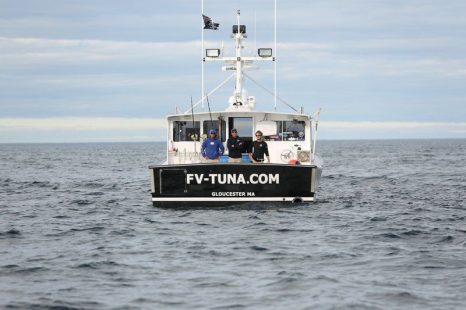
Sunday Night: Rockporter joins sixth season of ‘Wicked Tuna’
The intense work of Gloucester’s now famed blue-fin fishermen will be showcased again when the international hit television show “Wicked Tuna,” kicks off its sixth season Sunday night on the National Geographic channel. Gloucester Capt. Dave Carraro of the FV-Tuna.com once again won the competition last season, but just barely, with a total catch value of $104,785. Just $174 behind was Capt. Paul Hebert, also of Gloucester, who at one time was part of Carraro’s crew. He now captains his own fishing vessel, the Wicked Pissah. “We won the last three of the five seasons, and this year we are going to have a bigger target on our back now more than ever before,” said Carraro of his crew. “We are the New England Patriots of the fleet.” The National Geographic series airs internationally in 171 countries and in 45 languages. continue reading the story here 09:21
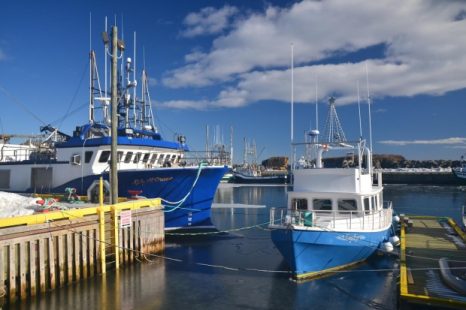
Not what I’m seeing: Crab fisherman thinks stock healthier than scientists say
Port de Grave snow crab fisherman says he’s baffled by a bleak stock assessment recently released by the Department of Fisheries and Oceans. While federal scientists said there has been a whopping 40 per cent decline in the amount of harvestable crab off the coast of Newfoundland and Labrador, Dwight Petten says that doesn’t match what he is seeing on the water. Petten, 51, has been fishing for a quarter century. He and his 27-year-old son own two boats, employ six people and have a 500,000-pound quota which they caught easily in 2016. “We found catch rates the best we’ve ever had, so we’re not seeing what the scientists is saying is happening,” he told the St. John’s Morning Show. Petten, who fishes in Area 3L, from Bonavista to Cape Race, said he is seeing lots of healthy crab, despite the assertion by scientists that there are few small crab to replace the mature stock. continue reading the story here 07:51



































